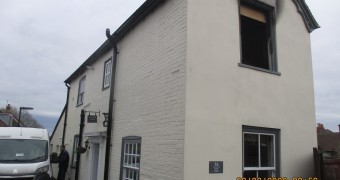Probate value vs. market value: What’s the difference?
If you have suffered a loss in the family and are dealing with your loved one’s estate, probate, a term that might have been fairly alien to you until now, will suddenly loom large. Probate is the process of administering a deceased person’s estate, and it can be stressful and drawn out, particularly in complex cases.
As part of the probate process, you’ll typically need a probate value and a market value of the more significant assets in the estate. One is for the benefit of HMRC while the other is advisable when selling property and other valuable assets. The difference between probate value and market value can be confusing, so here we explain what each value is and how it’s used.
What’s the difference between probate value and market value?
Probate value
The probate value of an asset, such as a property, is its value if it was offered for sale at the date of death. It determines the total value of the asset and is required by HMRC for inheritance tax reasons. In the case of a property, property valuations are usually carried out by a chartered surveyor, although you can ask an estate agent to carry out a full valuation of a property for probate.
A probate valuation is more detailed than a market valuation as it must stand up to scrutiny from HMRC. A chartered surveyor will perform the valuation in line with the RICS’ Red Book guidelines and will consider factors such as:
- The property’s age
- The style of construction
- Its structural integrity
- The state of repair
- Its location
- Any unusual features
The result is a formal valuation that can stand up to scrutiny and is the considered opinion of an expert surveyor based on market data, experience and a detailed building inspection.
Market value
The market value of an asset is something different. In the case of a property, it is a valuation performed by an estate agent who uses various factors, such as its location, condition and recent sales in the area to determine a potential sale price.
The market value of a property is an estimate of a price based on the estate agent’s working knowledge of the market in the local area. Unlike a probate value, it is more concerned with price rather than a property’s intrinsic value.
Is the probate value usually more or less than the market value?
There’s a misconception that the probate value of an asset is usually lower than its market value, but that’s not necessarily the case.
For example, if you inherit a property that you plan to sell quickly, the two valuations will usually be very similar as they will be performed at around the same time. If you leave some time before selling the property, external factors such as inflation, the health of the property market and changes to the local area can all affect its market value. These factors usually push property prices up rather than down, which is why the market value can sometimes be higher than the probate value.
Why do I need a probate value?
When an estate goes into probate, as the executor, you must provide HMRC with a thorough valuation of the assets so it can calculate how much inheritance tax, if any, is due. You must give HMRC the probate value of the estate regardless of whether you plan to sell the assets.
If part of the estate is a property you hold on to or live in for a period but later sell, the market value may be higher than the probate value. In that case, you may need to pay Capital Gains Tax on the difference.
As well as property, you should also get a probate value for assets such as art, antiques or jewellery worth more than £1,500. You can estimate the value of household items worth less than that, although you should still take steps to make sure your valuations are accurate.
What happens if I do not provide an accurate probate valuation?
If HMRC believes a probate value may not be accurate, it can ask the District Valuer, which provides property valuations and advice to HMRC on property, to investigate. If it finds your figures don’t add up, it can impose a fine of up to 100% of any additional tax you owe. Executors can also be made personally liable for any penalty or loss incurred.
On the other hand, you may provide an inaccurate probate value that’s higher than it should be. In that case, you may be charged more inheritance tax than is due. That’s why you should always use a qualified chartered surveyor with specific experience in probate valuations.
Do I have to sell a property for its probate value?
No. If you inherit a property, you must get a probate valuation and report the value to HMRC for inheritance tax purposes. However, when you sell the property, most sellers get a market valuation from two or more estate agents.
It’s unlikely that the price you sell at will be the same as the probate value. In that case, you must declare the actual selling price to HMRC. Once it has accepted your probate valuation, it will usually view an increase in the sale price as a capital gain and you must pay the tax due.
Get peace of mind with professional probate and market valuations
Given the risks of an over- or undervaluation, it’s worth seeking professional assistance to ensure you get it right. At Eddisons, our chartered surveyors and RICS Registered Valuers provide probate and market valuations you can trust, always at a reasonable price. Find out more about our valuation service and get in touch for expert advice.
Experts in commercial property
Contact our team of leading auctioneers, property agents, and RICS-qualified surveyors today.
Get in touch with us for your valuation
Please fill out the fields











